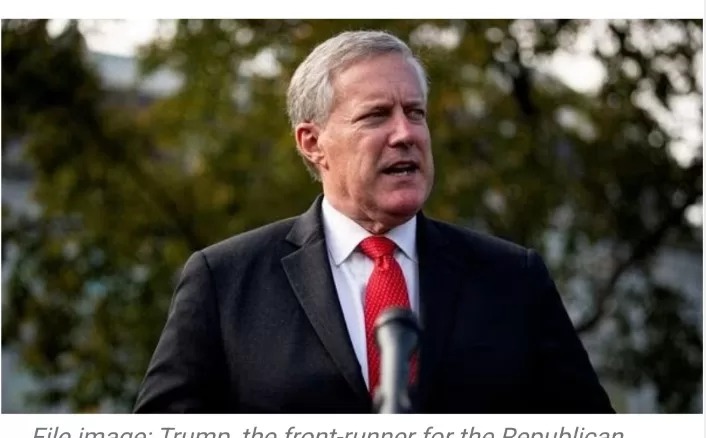In a significant legal development, a U.S. District Judge has dismissed the request made by Mark Meadows, the former White House chief of staff under Donald Trump, to relocate his Georgia election subversion case to federal court. This ruling signals a potential setback for similar efforts by the former President and his co-defendants to change the jurisdiction of the criminal case, aiming for a more favorable venue.
Meadows stands accused of orchestrating calls and meetings where prosecutors assert that Trump exerted pressure on election officials to manipulate the vote count in his favor. One notable instance involved Trump urging Georgia Secretary of State Brad Raffensperger to “find” enough votes to secure victory in a state that Joe Biden ultimately won.
This legal decision by U.S. District Judge Steve Jones, denying Meadows’ attempt to transfer his case from Georgia state court to federal jurisdiction, represents an early victory for Fulton County prosecutors. In August, these prosecutors charged Trump and 18 others with conspiring to overturn Trump’s electoral defeat to President Joe Biden.
It’s worth noting that Trump himself may seek to shift his trial from the state to federal court, as suggested by his attorney in a recent court filing. Meadows, on the other hand, has filed a notice of appeal following this ruling.
As of now, no comment has been provided by Mark Meadows’ legal representatives.
Both Trump and Meadows have asserted their innocence in this matter. Prosecutors contend that their actions were not within the scope of “necessary and proper” duties for a U.S. president and his chief of staff. Meadows maintains that these activities fell under his responsibilities as Trump’s highest-ranking White House aide. The law permits defendants to request federal court jurisdiction if their charges stem from their official duties.
One of the key advantages of moving to federal court for Meadows would have been the potential for a more diverse and impartial jury pool. Fulton County, Georgia, where the case was initially filed, is known as a Democratic stronghold, while federal court draws from a broader political spectrum.
Additionally, the shift to federal court could have allowed Meadows to argue that he is immune from state prosecution because he was executing his duties as a federal official.
This legal development further complicates the legal landscape for Meadows, Trump, and the other 17 individuals charged in the August indictment. Trump has publicly alleged that these criminal cases, including three others he faces, are part of a political conspiracy aimed at thwarting his return to the White House in the 2024 presidential election.
In addition to the Georgia case, Trump is facing indictment in Florida for mishandling classified information after leaving office, as well as legal proceedings in New York over hush money payments made to a porn star and in Washington for his efforts to overturn the 2020 presidential election results.
As these legal battles unfold, the political and legal future of both Trump and Meadows remains uncertain.




